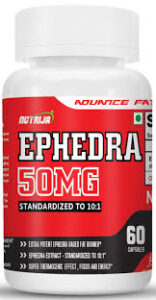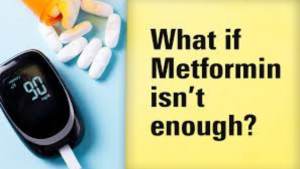You Ever Wonder If Supplements Are Too Good to Be True?

You know what? Supplements are everywhere. Walk through Costco, Walgreens, or scroll on Amazon, and you’ll see entire aisles lined with bottles promising energy, sharper memory, or better sleep. They look safe, polished—even comforting. But here’s the thing: not all supplements are harmless. Some are actually supplements that increase heart risk, and they don’t exactly shout that from the label.
Think about Ephedra, once the golden child of fat-burners before it was banned. Yohimbe, still on the shelves, hides in “performance boosters” that can spike blood pressure. Even everyday vitamins that affect the heart—like Vitamin E—can become dangerous when taken in high doses. And licorice root? That sweet flavor in teas and candies can be one of the most dangerous supplements for heart problems if used too often.
At www.evaluatemymeds.com, I’ve seen time and time again how patients assume supplements are safe just because they’re “natural.” But here’s where it gets messy—mixing these with prescriptions often leads to herb medication interactions that magnify the risk. A supplement that thins blood plus a drug that does the same? That’s a recipe for trouble.
So if you’ve ever wondered “Are supplements safe for heart health?” the answer isn’t simple. Let’s break it down.
Why “Natural” Doesn’t Always Mean “Safe for Your Heart”

Honestly, this is one of the biggest myths out there. People hear “natural” and think “harmless.” But arsenic is natural. So is poison ivy. Natural doesn’t equal safe—it just means it wasn’t made in a factory.
Several supplements bad for heart health prove this every year. Some push your cardiovascular system into overdrive, others quietly alter your blood chemistry over months, and many slip under the radar through herb medication interactions.
Here’s the thing: the harm isn’t always instant. Maybe your heart skips a beat once in a while. Maybe your blood pressure creeps up. You shrug it off. But months later, your cardiologist looks at your chart and wonders why your meds don’t seem to work. That’s how supplements linked to heart disease sneak up on people.
Let me explain with a picture you know: your heart’s like a car engine. Prescriptions are the calibrated oil and fuel keeping it running smoothly. Adding random supplements? It’s like pouring in some mystery fluid you bought at a flea market. It might run fine for a bit… until it doesn’t.
Ephedra: The “Fat Burner” That Burned Too Many Bridges

Remember Ephedra? If you lived through the early 2000s, you saw it everywhere—weight-loss ads, pre-workout tubs, glossy fitness magazines. For a while, it was the “miracle” ingredient. But behind the hype, ER doctors were treating chest pains, strokes, and even sudden deaths.
Ephedra is a strong stimulant. It doesn’t just burn fat—it slams your nervous system, forcing your heart to pump harder and faster. That’s why it became one of the most infamous supplements that increase heart risk.
Even after the FDA banned it in 2004, the story didn’t end. Companies just swapped it with cousins like synephrine or packed in mega-doses of caffeine. Today, you’ll still see “fat burners” and “pre-workouts” with vague “proprietary blends” that hide how much stimulant you’re really getting.
On www.evaluatemymeds.com, I highlight stories of patients who thought they were just getting a harmless energy boost—until they wound up in the ER with blood pressure readings through the roof. That’s why stimulants, flashy as they look, are classic supplements bad for heart health.
Vitamin E: When a “Healthy” Vitamin Turns Hazardous

Let’s flip to something ordinary—Vitamin E. You’ll find it in fortified foods, multivitamins, even skin creams. People barely give it a second thought. But here’s the twist: in high doses, Vitamin E thins the blood so much it raises your risk of bleeding strokes.
Unlike caffeine jitters, you won’t feel this risk creeping up. It’s silent. Fat-soluble vitamins like E don’t flush out easily. They build up in your body, slowly tipping into unsafe territory. That’s why high-dose Vitamin E is one of the more surprising vitamins that affect the heart.
And if you’re on blood thinners? Stacking Vitamin E is like balancing a tower of blocks on a shaky table—it only takes one nudge to send it crashing down. That’s why it’s one of those supplements linked to heart disease that nobody expects.
Honestly, it’s a wake-up call. At www.evaluatemymeds.com, I often remind readers: vitamins can help, but more isn’t better. Sometimes more is just more risk.
Yohimbe: The Bark That Bites Back

Yohimbe has been sold for decades as an energy booster and sexual health enhancer. Sounds harmless, even exotic. But peel back the label and you’ll find a substance known to cause anxiety, tremors, high blood pressure, and irregular heartbeats.
For healthy people, it’s risky enough. For anyone with heart disease? It’s like playing chicken with your cardiovascular system. That’s why doctors rank it as one of the most dangerous supplements for heart problems.
To make matters worse, Yohimbe doesn’t mix well with antidepressants, blood pressure meds, or other stimulants. These herb medication interactions can push already risky effects into life-threatening territory.
That’s why Yohimbe, despite the marketing hype, is one of the most concerning supplements that increase heart risk still sold today.
Licorice Root: Sweet, But Risky

Licorice root feels cozy. It’s in teas, candies, cough syrups. But in large amounts, it messes with your electrolytes. Potassium plummets, sodium rises, blood pressure climbs. And since potassium is critical for regulating heartbeat, low levels can trigger arrhythmias—or worse, cardiac arrest.
That’s why licorice root earns its spot among supplements bad for heart health.
Here’s the kicker: it doesn’t just harm directly. Licorice root interacts with common diuretics and blood pressure medications, making them less effective. Imagine sipping your tea nightly, only to find your blood pressure creeping up because your meds are being undermined. That’s how licorice root sneaks onto the list of supplements linked to heart disease.
On www.evaluatemymeds.com, I’ve listed common household herbs like licorice that people underestimate. It’s ironic, isn’t it? Something so sweet carrying such hidden risks.
The Quiet Trouble: Herb and Medication Interactions

Here’s the thing—sometimes the supplement isn’t the whole problem. It’s the combination with your prescriptions.
Take St. John’s Wort. It speeds up how your liver processes meds, meaning your heart prescriptions may not work. Ginkgo? Fine alone, but add aspirin and suddenly your blood is too thin. Ginseng? Marketed for energy, but it can spike blood pressure and counteract beta blockers.
These herb medication interactions don’t announce themselves with alarms. They whisper. Your blood pressure’s harder to control. Your cholesterol meds seem weaker. Your heart rhythm feels off. And unless someone connects the dots, you won’t realize it’s the “harmless” supplement causing the problem.
This is exactly why doctors and pharmacists ask what you’re taking. They’re not nosy—they’re trying to keep your heart safe.
Protecting Your Heart Without Giving Up Supplements
So, do you need to toss every pill in your cabinet? Not necessarily. Here’s a smarter way forward:
-
Bring a list. Write down every supplement you take—even gummies and teas—and show your doctor.
-
Stick with safe doses. Especially when it comes to vitamins that affect the heart like Vitamin E.
-
Notice signals. Palpitations, dizziness, chest pressure—those could mean you’re dealing with supplements that increase heart risk.
-
Rely on basics. A balanced diet, exercise, and sleep still beat dangerous supplements for heart problems every time.
Supplements aren’t evil. But without awareness, they can shift from helper to hazard.
Wrapping It Up
From Ephedra’s stimulant punch to Vitamin E’s silent risks, from Yohimbe’s jittery side effects to licorice root’s blood pressure problems, the evidence is clear: there are plenty of supplements bad for heart health.
The better question isn’t just “Are supplements safe for heart health?” but “Are they safe for me, with my body, my prescriptions, my lifestyle?” That’s what matters.
So next time you’re tempted by a shiny new bottle promising energy or “support,” pause. Ask. Research. Because protecting your heart isn’t about taking more—it’s about knowing what’s really safe.
FAQs: Quick Answers:
Q: Are supplements safe for heart health if they’re from a trusted brand?
Not always. Even reputable companies can sell supplements linked to heart disease. Safety depends on the ingredient, dosage, and your health—not the brand name.
Q: Which vitamins affect the heart most?
High-dose Vitamin E and Vitamin D are vitamins that affect the heart most significantly. Both can alter blood chemistry in risky ways.
Q: How do I know if I’m experiencing herb medication interactions?
Watch for unexplained shifts: blood pressure that suddenly rises, or medications that stop working as expected. That’s how herb medication interactions show up.
Q: Where can I learn more about supplements and medications?
Check the FDA’s Dietary Supplements Safety page, the NIH Office of Dietary Supplements, or browse guides on www.evaluatemymeds.com.
🔗 External Link Suggestions:
-
FDA Dietary Supplements Safety – FDA guidance on supplement regulation and warnings.
-
American Heart Association – Supplements and Heart Health – general info on heart health and supplement safety.
-
Mayo Clinic – Dietary Supplements: What You Need to Know – plain-language resource for supplement safety.
-
NIH Office of Dietary Supplements – fact sheets on vitamins, herbs, and their effects.
🔗 Internal Link Suggestions:
-
Supplements That Require Blood Tests: https://evaluatemymeds.com/index.php/blog/
-
Medication and Herb Interaction Checker: http://www.evaluatemymeds.com








